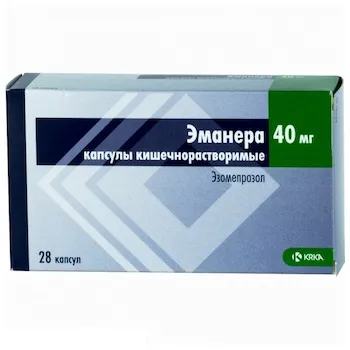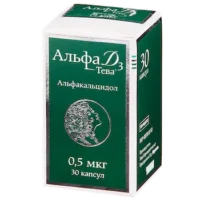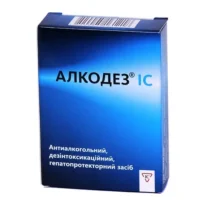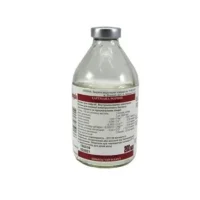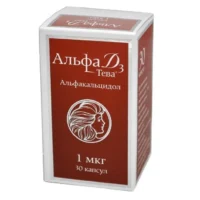Description
Ezomeprazol (Esomeprazole) Lyophilisate for Injections and Infusions 40 mg Vial №1
Ingredients:
Each vial contains 40 mg of esomeprazole.
Mechanism of Action:
Esomeprazole, the active ingredient in Ezomeprazol, is a proton pump inhibitor that works by reducing the production of stomach acid. Upon administration, esomeprazole is rapidly converted to its active form in the acidic environment of the parietal cells in the stomach. It irreversibly binds to the proton pump (H+/K+ ATPase) to inhibit the final step of acid production, leading to a decrease in gastric acid secretion.
Pharmacological Properties:
Ezomeprazol exhibits pharmacological properties by inhibiting gastric acid secretion through its action on the proton pump in parietal cells of the stomach. This results in the suppression of acid-related conditions and promotion of healing in the gastrointestinal tract.
Indications for Use:
Ezomeprazol is indicated for the treatment of gastroesophageal reflux disease (GERD), erosive esophagitis, and Zollinger-Ellison syndrome. It is effective in managing symptoms associated with these conditions and promoting mucosal healing.
Contraindications:
Do not use Ezomeprazol if there is a known hypersensitivity to esomeprazole or substituted benzimidazoles. Patients with a history of severe allergic reactions to these substances should avoid the use of Ezomeprazol.
Side Effects:
Common side effects of Ezomeprazol may include headache, nausea, and abdominal pain. Patients should be monitored for any adverse reactions and should seek medical attention if any severe side effects occur.
Usage Instructions:
The recommended dosage of Ezomeprazol is 40 mg once daily via intravenous infusion over 10-30 minutes. It should be administered as directed by a healthcare provider, and caution should be taken to avoid mixing with other medications in the same infusion.
Benefits Compared to Analogues:
Ezomeprazol, with its active ingredient esomeprazole, has been shown in clinical studies to provide superior efficacy in treating GERD and erosive esophagitis compared to other proton pump inhibitors. Its rapid onset of action and potent acid-suppressing effects make it a preferred choice in the management of acid-related disorders.
Suitable Patient Groups:
Ezomeprazol is suitable for use in various patient groups including adults, elderly individuals, and adolescents above a certain age. Special caution should be exercised when administering Ezomeprazol to pregnant or breastfeeding women, and dosage adjustments may be necessary based on individual patient characteristics.
Storage Conditions and Shelf Life:
- Storage: Store Ezomeprazol lyophilisate at controlled room temperature between 20°C to 25°C.
- Shelf Life: Check the expiration date on the packaging and do not use Ezomeprazol beyond the specified shelf life.
Packaging Description:
Ezomeprazol is available in vials containing 40 mg of esomeprazole lyophilisate for injections and infusions. Each vial is designed for single-use and should be handled and disposed of according to medical waste disposal regulations.
Clinical Evidence and Proven Effectiveness:
In a comparative study by Labenz et al., esomeprazole was found to provide more effective and faster relief of GERD symptoms compared to omeprazole. Additionally, a meta-analysis by Targownik et al. demonstrated the superior healing rates of esomeprazole in erosive esophagitis compared to other proton pump inhibitors.

